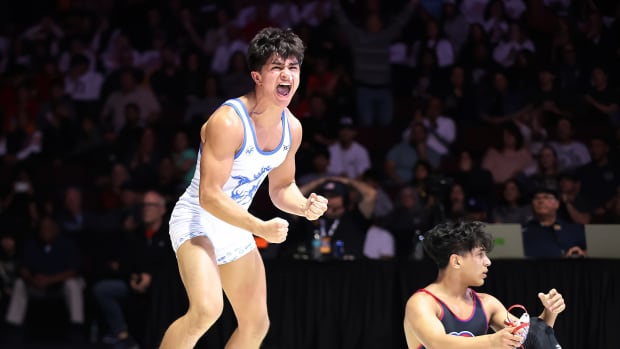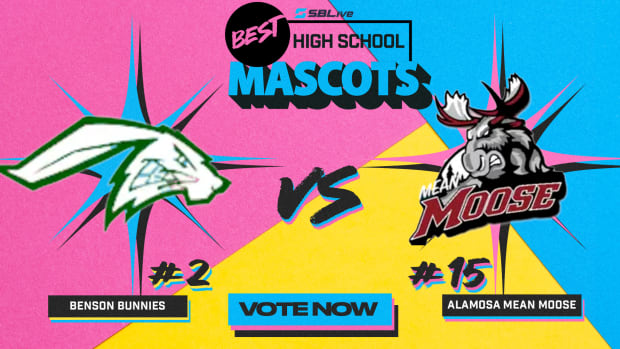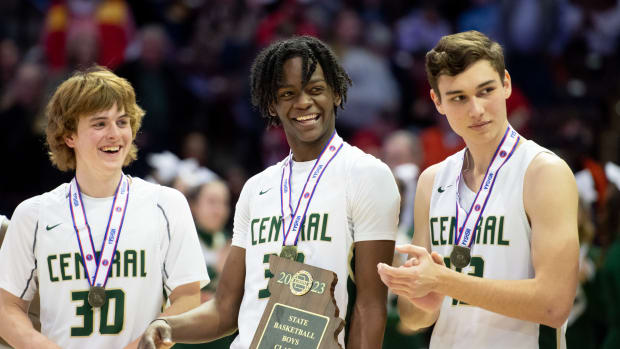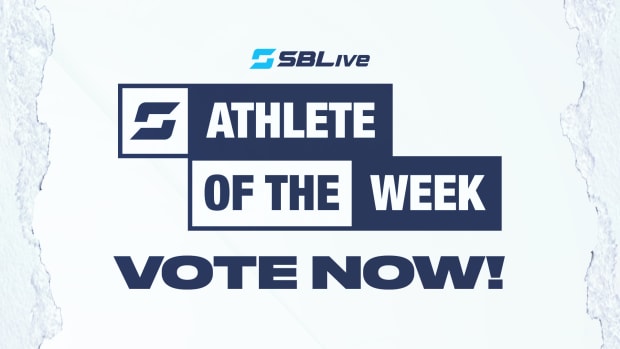Ex-Thurston baseball star Darrell Hunter the key man behind the scenes in Oregon Ducks’ power surge
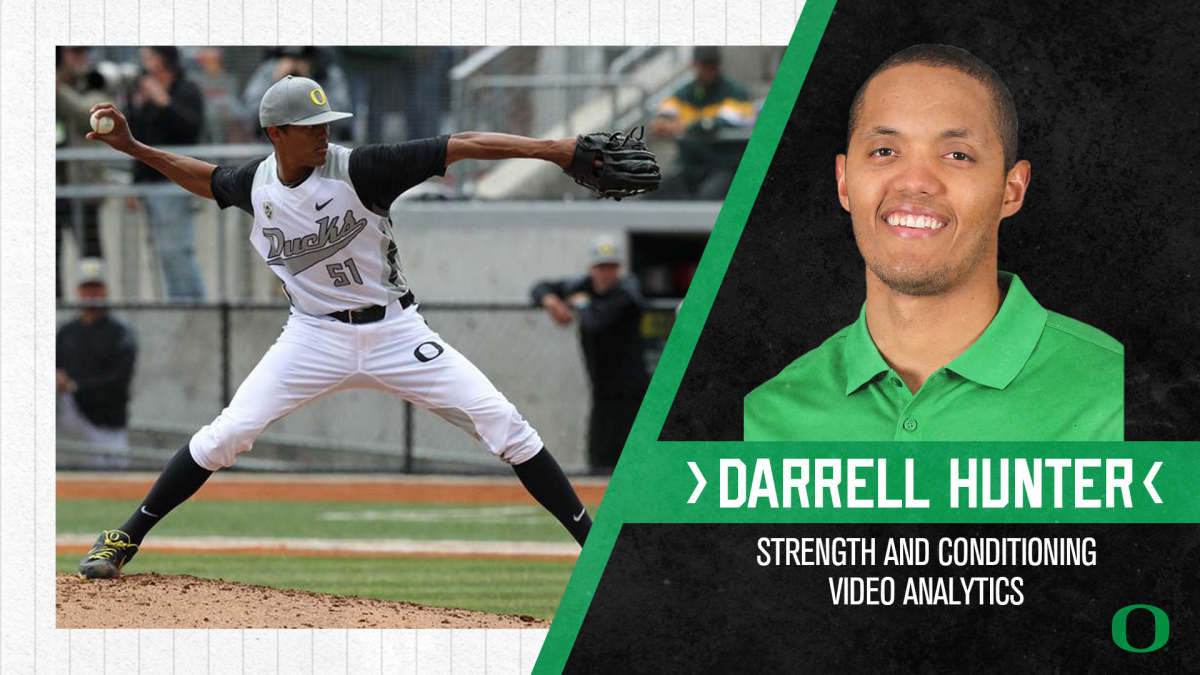
By Bob Lundeberg
Photos and graphic courtesy of Oregon Ducks Baseball and Hunter family
—
Few people have played a bigger role in the resurrection of Oregon baseball than Darrell Hunter.
Hunter, the 2008 Class 5A state player of the year at Thurston, was the first recruit to sign with the modern-era Ducks. His college career lasted six years due to medical issues, and Hunter spent some time in pro ball before returning to his home area as a baseball administrative assistant for the 2016 season.
The former pitcher has remained in Eugene ever since, navigating the transition between current head coach Mark Wasikowski — an assistant at Oregon during Hunter’s playing days — and George Horton. Hunter, a health junkie, became the team’s strength and conditioning coach in 2019, a position that seamlessly merges his backgrounds in baseball and fitness. The results have been spectacular.
Coming off a successful 2021 season in which Oregon hosted a regional and finished 39-16 overall, the beefed-up Ducks have belted a school-record 71 home runs this spring. They will have the opportunity to do more damage in the postseason, and Hunter expects nothing less from a group that’s embraced his teachings.
“The offense has been really good,” Hunter said. “The young guys have stepped up, and we’ve had some good transfers in guys like (Brennan) Milone and (Drew) Cowley. I think they are aggressive, and even if we haven’t scored in a few innings, we can put up runs anytime.”
Hunter’s journey to the strength and conditioning side of baseball began a decade ago following a terrifying incident at practice.
The Ducks had just completed a poor offensive scrimmage and were running laps as a consequence. Wasikowski, who came aboard as an assistant in the summer of 2011, wanted to change Oregon’s image as a soft hitting team with dominant pitching.
“We were trying to get that mentality across to the guys that this is going to be a different group,” Wasikowski said. “And on that day, the way we were doing it was we would teach and instruct on the things we didn’t like, and we would run a lap to reinforce the negative behavior so we didn’t see it anymore.”
The team had completed only a lap or two when Hunter collapsed and rolled into the left-field wall. The entire staff rushed over to Hunter and quickly realized he was having a seizure.
The incident was a wake-up call for Hunter, who had been plagued by seizures in the past. The seizures first appeared after Hunter suffered a concussion as a sophomore.
“I was really struggling, and then I learned that getting in good shape and eating healthy can help with seizures,” said Hunter. “So, I started doing that. My goal was to never let that happen again.”
Hunter sat out the 2012 season and returned to the mound the next spring with a transformed body. Down more than 50 pounds, the right-hander made 49 total relief appearances in 2013-14 and had a 3.22 earned run average in 67 innings. A relapse ended his professional career, but Hunter has been seizure-free since 2015.
“What happened at that scrimmage, my gosh, that’s not what any of us sign up for,” Wasikowski said. “But that changed his lifestyle forever with diet, exercise and everything else he did. And all of a sudden, he got a handle on the normal seizures and he became the most healthy person in our program; he could be the most healthy person in our athletic department.”
Hunter is a fitness freak who prepares all of his own food, even on road trips. Wasikowski called his workout regimen “ridiculous.”
“He seriously looks like Ashton Eaton,” Wasikowski said. “If you put him and Ashton Eaton together in a photo shoot, they could make millions!”
As a former Ducks pitcher who practices what he preaches, Hunter has immense credibility with the current group of players. He mostly works in small groups of three or four who require similar training.
“Relationships are first for me as a strength coach,” Hunter said. “Anybody who knows me knows that I’m not a big yeller. I try to build a relationship with each player where they trust me and I trust them to get their work done.
“It helps having played for Coach Waz. I have that built-in respect from players from being in their shoes, having played pro ball. I don’t think I’m viewed as an outsider, so that makes the process go a lot faster.”
Unlike many non-football strength and conditioning coaches at the college level, Hunter does not work with other sports. His sole focus is baseball, a request Wasikowski made to athletic director Rob Mullens during the interview process in the summer of 2019.
“And that was a change at Oregon,” Wasikowski said. “When I took the job, that was one of the things I was adamant about with Mr. Mullens. He was good with it and found a way to make it work.
“I knew Darrell was the person I wanted to hire because of the way he communicates with people. They had him around the team with Coach Horton and I heard he was really good with the guys. I knew he was a settling, quiet leader type, and I liked that. I just loved his story because his work ethic and how he transformed himself is something anyone can benefit from.”
More than a decade after his historic commitment to a program that was cut in 1981 and brought back for the 2009 season, Hunter remains an integral part of Ducks baseball.
His playing career didn’t go as planned, but Hunter is more than satisfied with how everything panned out. He gets to raise his family back home and mentor the next generation of Oregon baseball players.
“I think the guys that can look back on their careers with satisfaction are the guys who worked hard, and that was me,” Hunter said. “I don’t think I could’ve done anything different. I just wasn’t good enough. And I’m OK with that. I was someone who turned the corner with my work ethic, and I try to preach to the guys that you don’t want to be looking back in four years saying, ‘I wish I would’ve worked a little harder.’
“I just love working here because I’m a local kid, and being the first recruit, I helped build the program. And now that I’m continuing to do that, I think it means more than if I were coaching at another school.”


